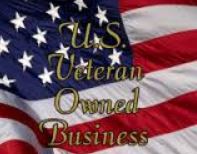Sales Tax Tips for Veteran Owned Small Businesses

Many of today’s small businesses are bogged down by complicated tax procedures. With so many small companies conducting business in multiple states, as well as the ever-changing tax laws, many Veteran small business owners find it difficult to remain in compliance with sales tax laws.
Know where you need to file: If you established or generated sales in a new state, made deliveries to a new state on a regular basis, or hired new employees that work remotely from another location, you might have occurred sales tax liability in a new state. This means that you have established a “nexus” in a new state. Nexus, also known as sufficient physical presence, is the determining factor of whether an out-of-state business selling products into a state is liable for collecting the tax on sales in the state. Nexus laws can differ drastically from state to state. Review the sales tax laws for each state that you could be conducting business in.
Know your Method of Filing: Each state determines its own methods for collecting sales tax from businesses. Some states require that all filings and payments be conducted online, while other states can’t support online capabilities. Knowing the correct filing requirements and options for your jurisdiction will also let know you know how to pay. Also, be sure to check pre-payment requirements for your tax jurisdiction. Many jurisdictions require prepayment for larger tax amounts. And some prepayments involve a different filing schedule than your regular return.
Check your bank statement and records: First of all, make sure that all of your checks to the Department of Revenue clear the bank. This sounds like a redundant measure, but if you are on top of your filings and payments, there should be no surprises or difficulties. If you find that you incur multiple instances of outstanding sales tax balances with the DOR, you should review your method for processing incoming and outgoing correspondence.
Know your filing frequency: Sales tax payment schedules can change. If your business is affected you should receive a notice via mail or email. However, if the notice doesn’t reach you, your business is still liable to pay your sales taxes on time. Just like with military rules and regulations, ignorance is not an excuse. It’s important to double check for any changes in your payment frequency at least twice per year.
Take care of all notices immediately: If you ever receive a notice from any jurisdiction, make sure that you review and respond to it in an appropriate amount of time. Even if you’re sure that you paid your taxes, be sure to read their notice and respond to it. Failure to respond to a notice could have your business licenses suspended, result in a levy on your bank account, or a lien on your corporate officers. Do not jeopardize your business because you ignored a notice.
Be in the habit of making accurate documentation: Audits can be an unnerving experience, even for Veterans. But if you are prepared, there’s nothing to worry about. Audits are like personnel inspections; appearances are everything. If your uniform was sharp and you were well groomed, then your inspection was a cinch. If your books are well maintained and transactions are easily followed through clear documentation, then your audit will be easy too.
Take advantage of automated sales tax services: Time is money, and sales taxes generate no profit for your Veteran small business. Why waste your time AND your money when you could easily be more effective overseeing more profitable aspects of your business. There are a variety of sales tax software options that can complete all of your sales tax requirements and meet all of your small business’ sales tax needs.










